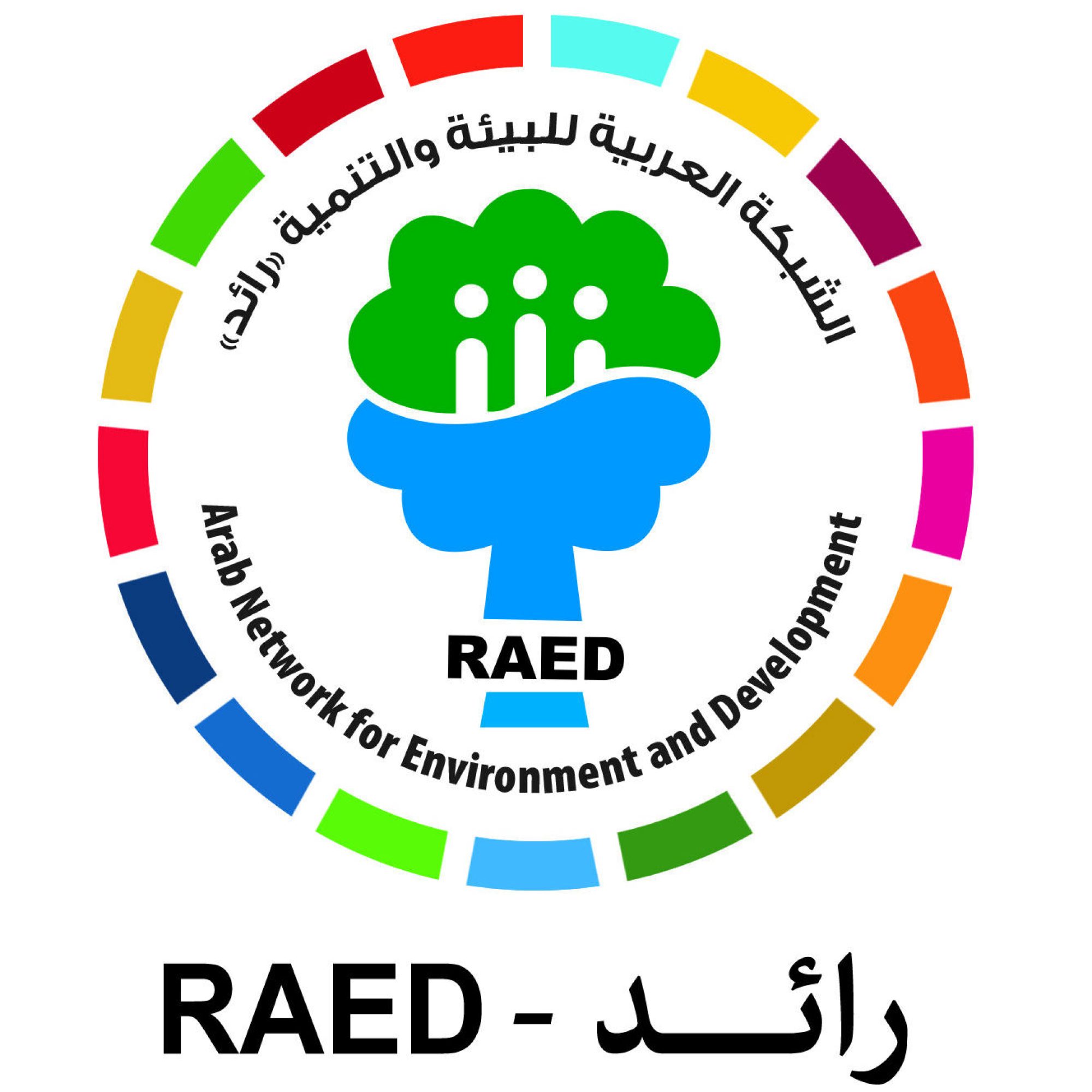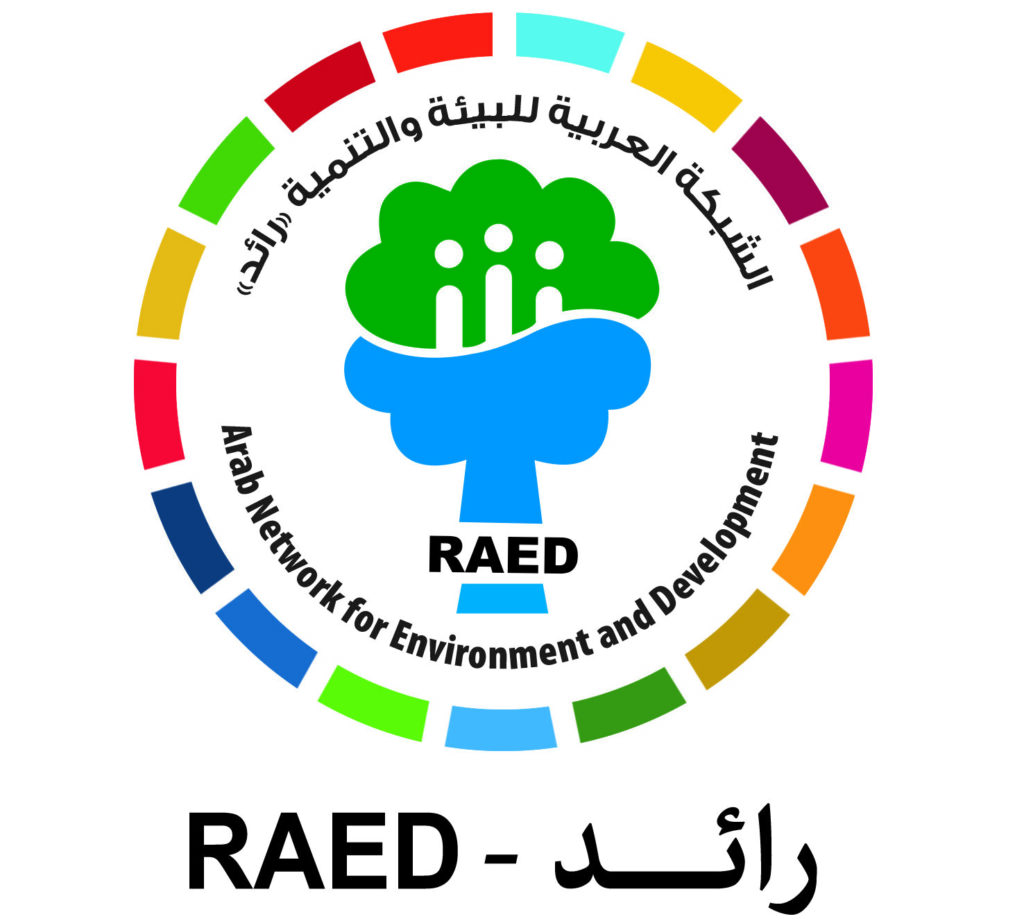Distinguished Participation of RAED Network in the Fifth International Water Conference in Baghdad
The Arab Network for Environment and Development (RAED) took part in the Fifth International Water Conference, organized by the Iraqi Ministry of Water Resources under the patronage of Iraqi Prime Minister Mohammed Shia’ Al-Sudani. The event was held from 24 to 26 May 2025, and witnessed broad participation from Arab and foreign ministers of water and natural resources, ambassadors, university representatives, civil society organizations, as well as experts, researchers, and officials from relevant ministries and government bodies in Iraq.
RAED’s delegation included Eng. Saadiya Faleh Hassoun, President of the “Together to Protect Humans and the Environment” Association and RAED’s National Coordinator in Iraq, and Dr. Khalid Assal, President of the “Aghsan Foundation for Environmental and Agricultural Development” and a RAED member.
The conference was supported by several international organizations, including: the United Nations Economic and Social Commission for Western Asia (ESCWA), the League of Arab States, the Arab Center for the Studies of Arid Zones and Dry Lands (ACSAD), the International Organization for Migration (IOM), the United Nations Development Programme (UNDP), the German Agency for International Cooperation (GIZ), the Water Diplomacy Center, the Blue Peace Middle East initiative, the International Union for Conservation of Nature (IUCN), the Food and Agriculture Organization (FAO), the World Food Programme (WFP), the UNESCO Institute, and the Convention on the Protection and Use of Transboundary Watercourses and International Lakes.
RAED organized a joint session with GIZ titled: “Enhancing Climate Change Adaptation in Iraq’s Water Sector: Integrating Risk Assessment, Inclusive Governance, and Community Action.” Eng. Saadiya Hassoun highlighted the critical role of civil society organizations in awareness-raising and advocacy for policy change toward sustainable water management that ensures equitable access to water resources for all.
Dr. Khalid Assal participated in several sessions, including three in collaboration with Tikrit University. One session addressed “Smart Agriculture and Its Role in Addressing Climate Change,” another focused on “Rainwater Harvesting and the Need to Adopt Its Technologies,” and a third was titled “Green Skills as a Solution to Achieve Sustainability.” He also participated in a joint session with Mosul University under the theme “Surface Irrigation: Current Status and Aspirations,” during which he presented several field experiences implemented by his foundation.
The conference concluded with a set of key recommendations, most notably:
- Civil society organizations should be active partners in shaping water-related policies.
- Their efforts should be intensified in collaboration with stakeholders in the water, agriculture, and environment sectors to promote water governance and ensure equitable and quality access for all.
- Encouragement of inclusive decision-making processes involving all segments of society in water resource management.
- Facilitation of dialogue between local communities and government or donor entities to effectively communicate their needs and priorities.
Other recommendations included:
- Influencing national policies and decisions to ensure inclusivity and the rights of vulnerable communities in water management plans.
- Establishing mechanisms to monitor water resource waste.
- Enforcing regulations and accountability systems to curb wasteful practices, particularly in car wash stations, households, and industrial uses.
- Ensuring water quality, treating wastewater, empowering youth, building their capacities, and involving them in awareness and decision-making programs.
On the sidelines of the conference, the “Together to Protect Humans and the Environment” Association signed a partnership and cooperation agreement with the British Knowledge House Academy to collaborate on experience exchange and the implementation of joint projects. It was also agreed to strengthen cooperation between the Aghsan Foundation and the Universities of Tikrit and Mosul to expand the use of smart agriculture technologies and rainwater harvesting, and to adopt policies that promote green skills development.


